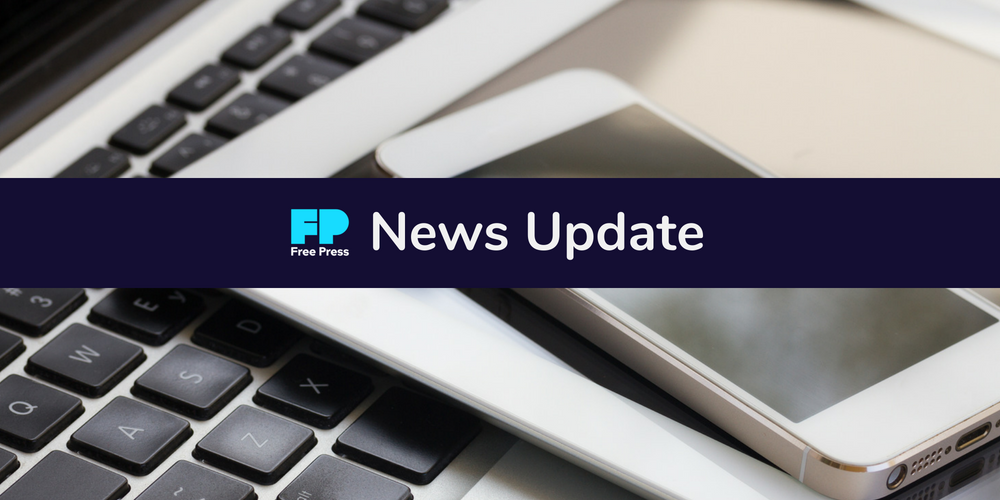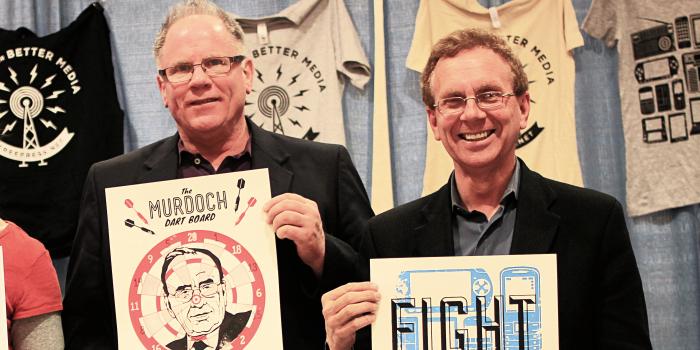Coalition of Journalism Groups of Color Responds to Philadelphia Inquirer Publisher's 'Gaslighting' of Their Membership

PHILADELPHIA — Philadelphia Inquirer Publisher and CEO Lisa Hughes sent an all-staff email dismissing concerns raised by a coalition of journalists of color about the paper’s ongoing failures to diversify its newsroom. The concerns were submitted in a letter from the Journalism Accountability Watchdog Network (J.A.W.N.), which urged Hughes and other Inquirer executives to “live up to [their] anti-racist PR” and build a newsroom that actually reflects the diversity of Philadelphia’s residents.
At present, the Inquirer has zero Black male news reporters apart from its sports desk. A 2021 Temple University diversity audit found that the paper features Black people only 26.4 percent of the time (compared to 58.8 percent of the time for white people). Of those stories featuring Black people, 53 percent are about sports. “The Inquirer tends to cover white people the most,” the co-chairs of the Temple audit wrote. “White reporters tend to write about white people even more.”
Hughes was dismissive of J.A.W.N.'s letter. The coalition — which includes the Asian American Journalists Association (Philadelphia chapter), Free Press, the National Association of Hispanic Journalists (Philadelphia chapter) and the Philadelphia Association of Black Journalists — had called on Inquirer leadership to initiate a series of meetings with J.A.W.N. to provide full details about their plans to better diversify the paper’s newsroom.
In her email to staff, Hughes stated that the concerns were coming from “voices outside our organization,” even though members of the groups that make up J.A.W.N. include current and former Inquirer staff. She added that J.A.W.N. was “looking to downplay and disregard” the work that the Inquirer is already doing. “We know better,” Hughes added. “We will not be discouraged, and we will not give in to their demands, threats, and belittlement.”
“NAHJ Philly is deeply troubled by the Inquirer publisher’s email to her staff, which disregarded our legitimate concerns about the lack of Black male news journalists at the paper,” said Vanessa Maria Graber, president of NAHJ Philly and News Voices director at Free Press. “Instead of engaging in constructive dialogue with us to co-create solutions, they responded to our call for accountability by gaslighting our organizations. Regardless, we remain committed to advocating for our members and the BIPOC community of journalists who deserve fair treatment and equal opportunity to employment at Philadelphia’s paper of record.”
“PABJ is infuriated by the tone-deaf response from the Inquirer,” said Ernest Owens, president of PABJ. “Publisher Lisa Hughes’ letter not only gaslit the efforts and concerns of our affinity groups but neglected to acknowledge that they were informed by the very Black and Brown staff members she claims to advocate for. Inquirer leadership can try to weaponize the Lenfest Institute’s resources against our decades-long activism all they want, but I would like to remind them that it was affinity groups like ours that were the first to demand DEI changes at their still-racist institution — and we will continue to do so as they try to put us at the back of the bus.”
“To be a true antiracist institution, the Inquirer should proactively work with diverse organizations like PABJ, AAJA Philly and NAHJ Philly,” said Tauhid Chappell, Free Press’ News Voices: Philadelphia manager. “Hughes needs to remember that these organizations’ members and constituents accurately reflect the true demographics of Philadelphia — communities and people the Inquirer needs support from if it wishes to survive in the city as a so-called public-benefit corporation. Hughes’ response is a step backward for the paper of record and an example of how not to react to valid public criticism.”
“AAJA Philadelphia is disheartened to see this reaction from Lisa Hughes,” said Jingyao Yu, president of AAJA Philadelphia. “We expect Hughes and leadership at the Inquirer to collectively work toward creating a safe and accessible workplace for all Asian American/Pacific Islander reporters and other journalists of color. Do better. The work to ensure accountability for building a more equitable, inclusive and antiracist newsroom and industry is not a box (or set of boxes) to be checked. AAJA Philly continues to stand in solidarity with other members of J.A.W.N. and the communities they represent.”




